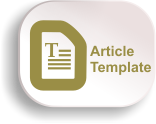Marketing Training Strategy for Employees of Rajawali Peanut Bread Factory in the Post-Pandemic Era in Tebing Tinggi City
DOI:
https://doi.org/10.55885/jucep.v4i2.375Keywords:
Marketing Training Strategy, Employee Development, Post-Pandemic Era, Rajawali Peanut Bread FactoryAbstract
In the era of globalization, marketing strategy is a crucial factor for companies to survive and compete, especially in the culinary industry, such as Rajawali Peanut Bread Factory in Tebing Tinggi City. The COVID-19 pandemic has had a significant impact on this sector, necessitating the adaptation of more effective marketing strategies, including employee training in product marketing. This study aims to analyze the marketing training strategy for employees of Rajawali Peanut Bread Factory in the post-pandemic period, in order to enhance their skills and competitiveness in product marketing. This research uses a descriptive qualitative approach conducted at the Rajawali Peanut Bread Factory. Data were collected through observation, interviews, and documentation, and analyzed using the Miles and Huberman model, which includes data reduction, data presentation, and verification. The results of the study show that the marketing training strategy is carried out through the on-the-job training method, where employees are directly guided by senior staff in marketing products. Employees are also trained to utilize social media and direct promotions to consumers. This training has proven effective in improving employees' marketing capabilities and expanding the market reach of peanut bread products.References
Astuti, P. B., & Mahardhika, A. S. (2020). COVID-19: How does it impact to the Indonesian economy?. Jurnal Inovasi Ekonomi, 5(02). https://doi.org/10.22219/jiko.v5i02.11751
Firmansyah, M. A. (2023). Pemasaran Produk dan Merek: Planning & Strategy. Penerbit Qiara Media.
Fitri, R., & Bundo, M. (2021). Dampak covid-19 terhadap industri rumah tangga pangan di Kota Padang. Jesya (Jurnal Ekonomi Dan Ekonomi Syariah), 4(2), 784–792. https://doi.org/10.36778/jesya.v4i2.379
Gerhart, B., & Feng, J. (2021). The Resource-Based View of the Firm, Human Resources, and Human Capital: Progress and Prospects. Journal of Management, 47(7), 1796–1819. https://doi.org/10.1177/0149206320978799
Gunawan, I. (2013). Metode penelitian kualitatif. Jakarta: Bumi Aksara, 143.
Hartanti, D. N., Lestari, D. P., & Sanjaya, V. F. (2022). Pengaruh Shopping Lifestyle, Discount Dan Promosi Penjualan Terhadap Implusive Buying Produk Di Cordy Butik Bandar Lampung. Keuangan Dan Akuntansi (MEKA), 3(1), 377–384.
Kotler, P., & Armstrong, G. (2008). Prinsip-prinsip pemasaran (Vol. 1, No. 2). Jilid.
Lexy J. Moleong. (2010). Metode Penelitian Kualitatif. Bandung: Remaja Rosdakarya.
Naradda Gamage, S. K., Ekanayake, E. M. S., Abeyrathne, G., Prasanna, R., Jayasundara, J., & Rajapakshe, P. S. K. (2020). A review of global challenges and survival strategies of small and medium enterprises (SMEs). Economies, 8(4), 79. https://doi.org/10.3390/economies8040079
Nasution, A. A., & Sutejo, B. (2006). Manajemen pemasaran. PT Inovasi Pratama Internasional.
Olivia, S., Gibson, J., & Nasrudin, R. (2020). Indonesia in the Time of Covid-19. Bulletin of Indonesian Economic Studies, 56(2), 143–174. https://doi.org/10.1080/00074918.2020.1798581
Olson, E. M., Olson, K. M., Czaplewski, A. J., & Key, T. M. (2021). Business strategy and the management of digital marketing. Business Horizons, 64(2), 285–293. https://doi.org/10.1016/j.bushor.2020.12.004
Parhusip, A. (2021). Dampak Covid-19 Terhadap Perekonomian Masyarakat (Studi Kasus Pendapatan Usaha Kuliner Di Tengah Pandemi Pada Kelurahan Tanjung Sari Kecamatan Medan Selayang Kota Medan). Jurnal Ilmiah Simantek, 5(3), 123–133.
Pasaribu, R. F. A., Sianipar, I. L., Siagian, Y. F., & Sartika, V. (2019). Pengaruh promosi dan harga terhadap keputusan pembelian produk soyjoy pt. Amerta indah otsuka kota medan. Jurnal Manajemen, 5(1), 45–52.
Purwanto, E. (2020). Pengantar bisnis: Era revolusi industri 4.0.
Rachmad, Y. E., Asmara, M. A., Purwanto, H., Thamrin, J. R., Violin, V., Awang, M. Y., … Wibowo, S. E. (2023). Manajemen Pemasaran Digital Terkini (Perubahan Era Manajemen Pemasaran Kearah Digitalisasi). PT. Sonpedia Publishing Indonesia.
Rajagukguk, A. M. (2022). Optimization of Cap Rajawali Bean Bread Production Capacity Using Goal Programming Method with Priority. Formosa Journal of Applied Sciences, 1(7), 1463–1488. https://doi.org/10.55927/fjas.v1i7.1971
Rivers, P. A., & Glover, S. H. (2008). Health care competition, strategic mission, and patient satisfaction: research model and propositions. Journal of health organization and management, 22(6), 627-641. https://doi.org/10.1108/14777260810916597
Setyorini, H., & Santoso, I. (2017). Analisis strategi pemasaran menggunakan matriks SWOT dan QSPM (studi kasus: Restoran WS Soekarno Hatta Malang). Industria: Jurnal Teknologi dan Manajemen Agroindustri, 5(1), 46-53. https://doi.org/10.21776/ub.industria.2016.005.01.6
Sitorus, R. O., & Nainggolan, M. L. W. (2022). Value Added Green Beans into Green Bean Bread Cap Rajawali in Tebing Tinggi. Journal of Agriculture, 1(02), 65–79. https://doi.org/10.47709/joa.v1i02.1713
Sudirjo, F. (2023). Marketing Strategy in Improving Product Competitiveness in the Global Market. Journal of Contemporary Administration and Management (ADMAN), 1(2), 63-69. https://doi.org/10.61100/adman.v1i2.24
Sugiyono, S. (2009). Metode Penelitian Kuantitatif, Kualitatif dan R&D, Cetakan 8. Alfabeta, Bandung. Alfabeta.
Syukri, S. H. A. (2014). Penerapan Customer Satisfaction Index (CSI) dan analisis gap pada kualitas pelayanan Trans Jogja.
Tanveer, M., Ahmad, A. R., Mahmood, H., & Haq, I. U. (2021). Role of ethical marketing in driving consumer brand relationships and brand loyalty: A sustainable marketing approach. Sustainability, 13(12), 6839. https://doi.org/10.3390/su13126839
Ulwanda, F. A., Triase, T., & Alda, M. (2024). Sistem Informasi Distribusi Dan Penjualan Roti Kacang Cap Rajawali Tebing Tinggi Menggunakan Metode Distribution Requirement Planning (drp). Journal of Science And Social Research, 7(3), 1053–1059 https://doi.org/10.54314/jssr.v7i3.2134

Downloads
Published
How to Cite
Issue
Section
License
Copyright (c) 2024 Journal of Universal Community Empowerment Provision

This work is licensed under a Creative Commons Attribution-ShareAlike 4.0 International License.














